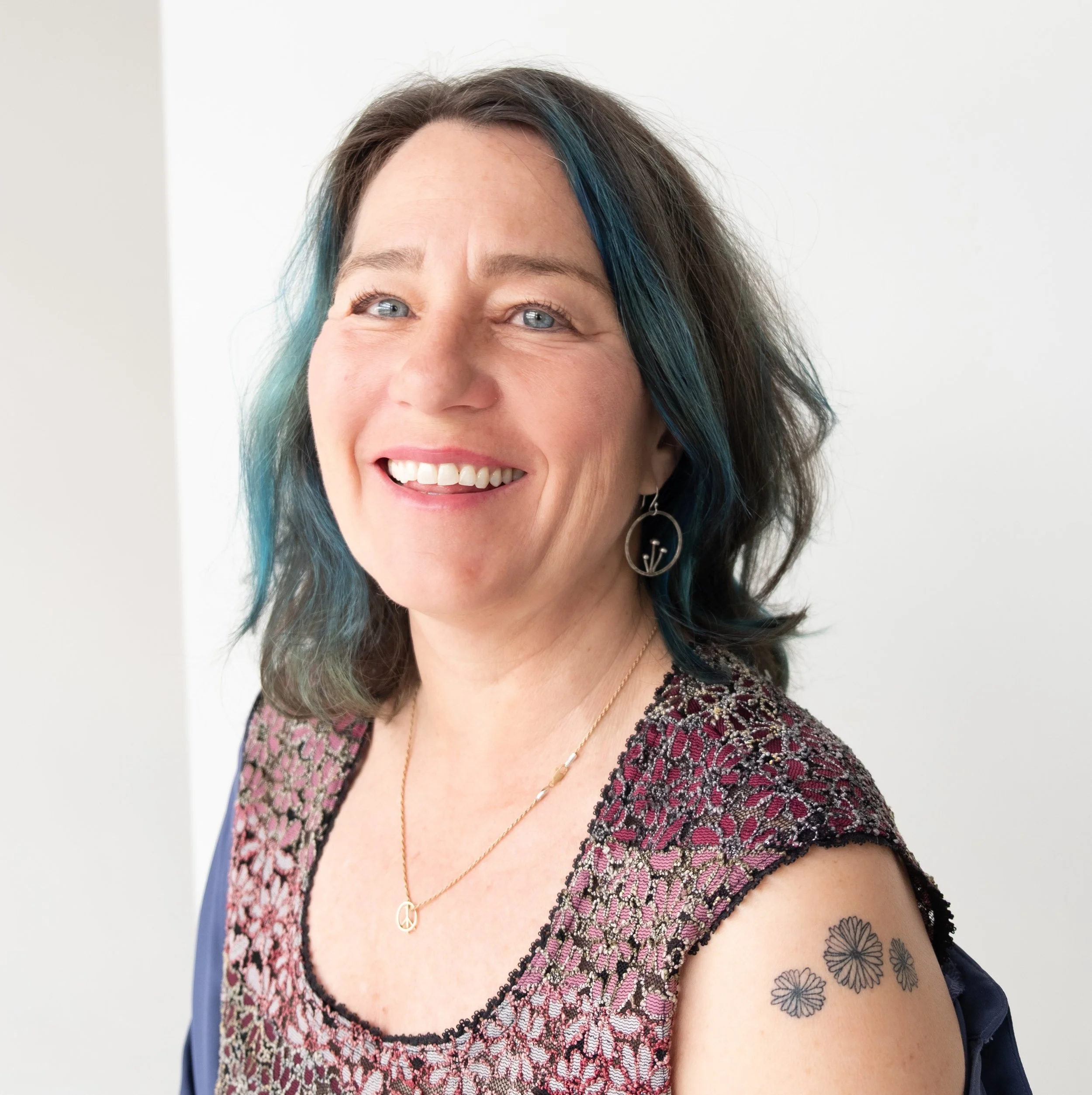33% off your first two 3-hour KAP sessions Makes KAP Affordable
〰️
33% off your first two 3-hour KAP sessions Makes KAP Affordable 〰️
Affordable Ketamine Assisted Psychotherapy (KAP) in Denver, CO
Decrease symptoms of depression and post traumatic stress disorder (PTSD) through deeply transformative healing with a trained ketamine therapist
Feeling stuck has started to feel like the norm
You’ve gotten stuck in traditional therapy because something in your past seems to be impeding your progress.
You sleep too late, avoid relationships, and have felt in a low mood for as long as you can remember. You’ve tried many antidepressants. Sometimes they work. Mostly they do not.
You’ve been diagnosed with post traumatic stress disorder (PTSD). Perhaps from a violent encounter/assault, military combat, a horrible accident, or a medical experience.
You’ve made good progress with traditional therapy and now want to take your self reflection and exploration into your unconscious realm.
You can’t drive past the place of an accident without reliving the whole event.
When your partner raises their voice, you feel like you move outside of your body.
During your childhood you experienced ongoing abuse and neglect. You’ve tried all types of therapy including EMDR, exposure therapy, and Brainspotting and still haven’t felt much relief.
Your symptoms now impact your work, relationships, even your favorite activities. You’re feeling caught in a negative loop and are unsure what to try next.
You can find healing and relief with Pam Peters, Ketamine Therapist in Denver, CO
Self exploration
Ketamine assisted psychotherapy or KAP with me puts you into a deep psychedelic state where memories, feelings, and thoughts arise in a very different way than regular consciousness.
In a safe space, with a trusted ketamine therapist, these experiences can help you gain insight and wisdom into yourself, your relationships, your soul, your spirituality—even into your place in the universe.
Ketamine can be a deeply meaningful source of enduring change and personal growth. It can help you more deeply engage in your existing therapeutic practice.
Heal from depression
It is possible to gain relief from mild to moderate depression using a series of three to six ketamine assisted psychotherapy sessions spread over a few months.
Ketamine therapy in Denver can help disrupt negative thought cycles that keep your mind stuck in negative loops and away from your present moment.
If other pharmaceutical antidepressants just aren’t working for you, speak with your provider and ask if sublingual ketamine therapy could be right for you. Or, reach out here for a free consult with a Denver ketamine therapist.
Process stuck trauma
Although Ketamine is considered a dissociative medication which takes you out of your body, often it can bring people into their bodies in order to re-experience old traumas in an emotionally and physically safe space. Trauma creates symptoms within the body that ketamine can help you really feel.
Sessions with a ketamine therapist can help you “get out of your head” or become more in tune with your heart and emotions. Being able to sit within these emotions in the safer ketamine space can enable you to heal from trauma, faster and more fully than other talk-focused modalities.
Ketamine increases Brain Derived Neurotrophic Factor (BDNR) which is essential in warding off depression.
*Ketamine-assisted therapy is not right everyone. If you have mania, schizophrenia, high blood pressure, are taking Benzodiazepines, or have other specific medical issues, ketamine may not be appropriate for you.
Ketamine Assisted Psychotherapy (KAP) opens your mind, heart and soul to deeply transformative healing.
These are just a few of the benefits of sessions with a ketamine therapist. KAP can help with the following:
Depression
Relationship challenges
Self esteem
Anxiety
Personal exploration
Sexuality
Shame
Trauma and PTSD
Tell me more about ketamine
Ketamine was FDA-approved in 1970 for use as an anesthetic. It is safe and effective and has been given to patients around the world literally billions of times. As long as used under medical supervision to patients who have been found medically sound, ketamine is considered to be an extremely safe medication.
Research over the past five years has shown that ketamine has significant antidepressant qualities which can help people with treatment-resistant depression. In fact, over 70% of research participants responded positively to the treatment, compared to their response to other antidepressant medications.
There are a few methods using ketamine therapy for mental health issues including intravenous (IV) and sublingual/oral. IV must be done in a medical clinic under medical supervision and is most effective for severe treatment-resistant depression.
Sublingual is what I offer in my Denver ketamine therapist offices. You will bring your own medicine and I support your during this lower dose session. Sublingual ketamine can help with mild to moderate depression, trauma/PTSD, and offers insight into the unconscious which can help clients find new ways of being. Read my blog to learn more about what a ketamine medicine session may feel like. Learn more on our Resources page.

Helping you to create an emotionally and physically safe setting for psychedelic therapy
How ketamine assisted therapy works
I received training that included my own ketamine experiences to support my clients using oral/sublingual ketamine in a therapeutic setting.
Following is a brief outline of the ketamine therapy process. It is flexible and we may stray from it, if appropriate. Depending on several factors you may undergo three to six KAP sessions over the course of a few months.
(1) Initiation
We meet for a few (to several) talk therapy sessions and assess whether ketamine-assisted psychotherapy is right for you. We will begin to learn about and work with the various parts within you, based in an internal family systems (IFS) framework.
(2) Consent
If ketamine assisted therapy seems like a fit, we collaborate on informed consent, intention setting, expectation exploration, and rapport building.
(3) Prescriber
You meet with a medical provider who will determine if you are medically fit to receive ketamine. I refer to Adam Sheely (http://theuntitledmind.com/) and Isha Health (https://www.isha.health/). The initial appointment runs between $350 and $450.
(4) The Medicine
You fill your ketamine prescription at a compounding pharmacy. Most of the time this can be mailed directly to you.
(5) Co-creation
We collaborate to create a safe journey space and rituals in one of my cozy Denver-based offices. This might include an eye mask, special objects, aromatherapy, music, prayers, etc.
(6) The journey
Medicine sessions are two to three hours long. We’ll check in and do some grounding exercises in preparation. You’ll take the medicine and go on your 60- to 90-minute medicine journey with my guidance and music. Read my blog to better understand what the journey may entail. After you have come down from the medicine, we’ll spend some time in the liminal space created and begin with some easy integration and check in with some of your parts. Once complete, I’ll walk you to your transportation home.
(7) Integration
We will meet either in my Denver office or online within 48 hours of your medicine journey to incorporate what you experienced and process it using various integration techniques, including talk therapy, art, movement, journaling, and other methods. This is an ongoing process which takes place between sessions as well. We may process a journey for a few weeks before you go on another medicine journey. Depending on your situation, we may complete three to six medicine cycles over a few months time.
FAQs
Have questions about what it’s like to work with me—a Denver ketamine therapist? Check out these frequently asked questions. If you don’t see your question here, reach out to get in touch.
-
High dose intravenous (IV) ketamine has been shown to help treatment resistant depression. I do not offer IV ketamine. At lower sublingual KAP doses it has shown great promise in decreasing symptoms of mild to moderate depression. It is important to set realistic expectations and lean into the other strengths of this medicine such as creating new ways of looking at life through deep exploration of the unconscious mind.
-
It really depends. I like to discuss the possibility of doing 3-6 sessions spaced out every few weeks, depending on the issue you are working on. As always this process is flexible and can be adjusted along the way. The effects of ketamine are said to build up over time, which is one of the reasons a series of several is recommended. Between medicine sessions we will continue to process previous sessions through integration methods.
-
It is a dedicated space and time to ground the lessons and insights gained from a psychedelic journey into your “regular” waking life. It can take many different forms from talking to dancing or doing art. This phase of using psychedelic substances is the most essential step to reaping the benefits of these experiences.
-
Ketamine is not meant to replace medications, but instead to boost their affects. You may indeed be able to decrease dosages, or even stop some medications. But this is not the goal of KAP. Because I do not prescribe medicine, this is a discussion for you and your prescriber to have.
-
Many medications are ok to continue taking while undergoing ketamine sessions. This is best a conversation to have with the prescriber.
-
For a limited time I will be charging two times my hourly rate for individual and couple ketamine sessions. One two- to three-hour medicine session is $300. I recommend we look at scheduling three to six sessions.
-
It varies greatly. A small percentage of people do not have any reaction to ketamine, even with larger doses. For some it can feel warm and opening. For others, it can be an intense dive into another reality where there are no words to describe it. And each journey will be different. Your experience will be as unique as you are. Your inner healer knows what experience you need at the time. I will provide continuous support during the session no matter what comes up. Read more in my blog article: A Journey through Ketamine Assisted Psychotherapy (KAP): What Does it Feel Like?





